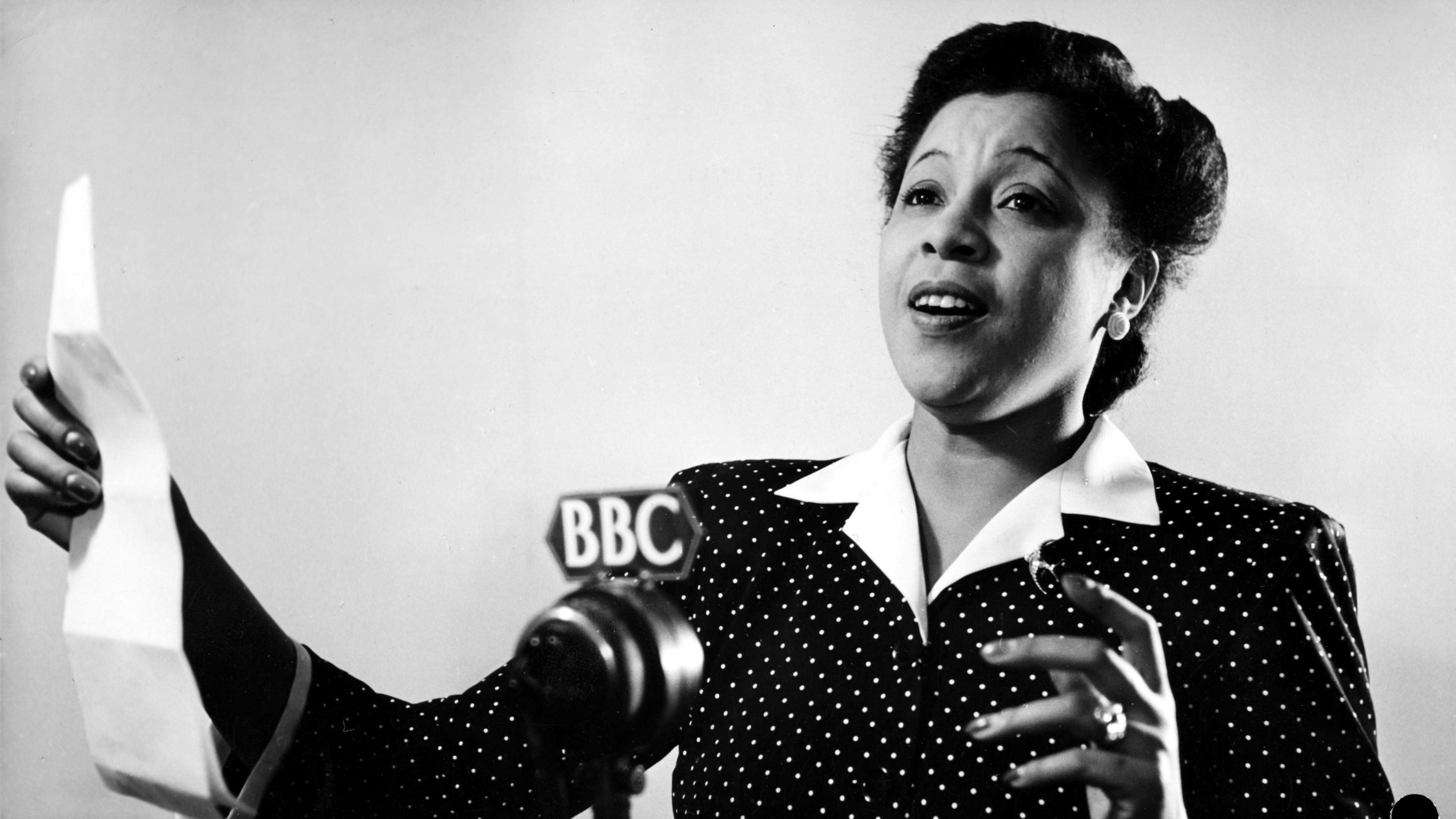'Real first lady of jazz' honoured with blue plaque

Adelaide Hall is considered one of the first black stars regularly featured on the BBC
- Published
Musician and dancer Adelaide Hall - hailed as the "real first lady of jazz" - is to be honoured with a blue plaque at her west London home.
The scat pioneer, who was born in Brooklyn, New York, spent 55 years in the capital.
The English Heritage plaque will be unveiled at 1 Collingham Road in Kensington, which was her home for 27 years.
She died in London in 1993 at the age of 92.
Ms Hall told an told an interviewer in June 1980: "I do like London very much. I like it because it's quiet - and I like the quiet life."
She was a pioneer of "scat" singing, renowned for using her voice as a pure jazz instrument.
She is believed to have had the longest recording career of any 20th-century artist and was recognised by Guinness World Records in 2003 for releasing material over eight consecutive decades.
Her 1943 radio series Wrapped In Velvet made her one of first black artists to regularly broadcast with the BBC.
During the Second World War, she worked for the Entertainments National Service Association (Ensa) and she performed in air raid shelters and hospitals, before becoming one of the first artists into Germany after the liberation.
Ms Hall has been described as a "rarity in showbusiness"
Stephen Bourne, historian and author of Sophisticated Lady - A Celebration Of Adelaide Hall, said: "Adelaide was a rarity in showbiz, because she honestly never had a bad word to say about anyone.
"She was so versatile and took so many artistic risks, but when I think of her it will always be as the real first lady of jazz, admired by the likes of Ella Fitzgerald and Elisabeth Welch.
"Having known her, I don't doubt that she would be absolutely thrilled to bits to get a blue plaque. I'm sure she is smiling wherever she is."
'She did it all'
Desert Island Discs on BBC Sounds: Adelaide Hall speaks to Sue Lawley
Musician YolanDa Brown, who is a member of the blue plaques panel, said Ms Hall's music was "unlike anything that people had heard before".
"She could do it all of course - showtunes, gospel and music hall songs," she said. "But it was this voice, wordless singing bursting out of her like it was the most natural thing in the world, that really set her apart.
"I am delighted that English Heritage are recognising her exceptional talent with a blue plaque."
Ms Hall moved to the upper part of 1 Collingham Road, an imposing 1870s corner house, in Kensington, on July 21 1952, according to rate books.
Apart from an extended absence during the long Broadway run of Jamaica from 1957 to 1958, she stayed there until late 1979.
Fellow jazz singer Elisabeth Welch, with whom Hall starred in Blackbirds Of 1928 - the most successful black revue ever to run on Broadway - is also commemorated with a blue plaque in Kensington.
Listen to the best of BBC Radio London on Sounds and follow BBC London on Facebook, external, X, external and Instagram, external. Send your story ideas to hello.bbclondon@bbc.co.uk, external
Related topics
- Published9 March 2022
- Published12 January
- Published23 September 2023